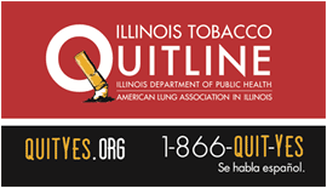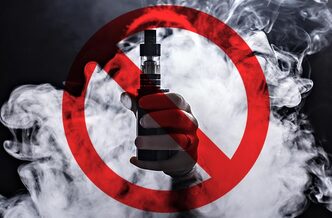Tobacco use remains the leading preventable cause of death in the US, accounting for about 1 in 5 deaths each year.
Smoking Tobacco
On average, people who smoke die about 10 years earlier than people who have never smoked.
Most people know smoking can cause cancer. But it can also cause a number of other diseases and can damage nearly every organ in the body, including the lungs, heart, blood vessels, reproductive organs, mouth, skin, eyes, and bones.
How smoking tobacco affects your cancer risk:
Smoking causes about 20% of all cancers and about 30% of all cancer deaths in the United States.
About 80% of lung cancers, as well as about 80% of all lung cancer deaths, are due to smoking. Lung cancer is the leading cause of cancer death in people in the United States.
Smoking also increases the risk for cancers of the: It also raises the risk of acute myeloid leukemia.
Cigarettes, cigars, and pipes can all cause cancer. There is no safe form of tobacco smoke.
Most people know smoking can cause cancer. But it can also cause a number of other diseases and can damage nearly every organ in the body, including the lungs, heart, blood vessels, reproductive organs, mouth, skin, eyes, and bones.
How smoking tobacco affects your cancer risk:
Smoking causes about 20% of all cancers and about 30% of all cancer deaths in the United States.
About 80% of lung cancers, as well as about 80% of all lung cancer deaths, are due to smoking. Lung cancer is the leading cause of cancer death in people in the United States.
Smoking also increases the risk for cancers of the: It also raises the risk of acute myeloid leukemia.
Cigarettes, cigars, and pipes can all cause cancer. There is no safe form of tobacco smoke.
Electronic Cigarettes
What‘s the bottom line?
E-cigarettes have the potential to benefit adult smokers who are not pregnant if used as a complete substitute for regular cigarettes and other smoked tobacco products.
E-cigarettes are not safe for youth, young adults, and pregnant women, as well as adults who do not currently use tobacco products.
While e-cigarettes have the potential to benefit some people and harm others, scientists still have a lot to learn about whether e-cigarettes are effective for quitting smoking.
If you’ve never smoked or used other tobacco products or e-cigarettes, don’t start.
E-cigarettes have the potential to benefit adult smokers who are not pregnant if used as a complete substitute for regular cigarettes and other smoked tobacco products.
E-cigarettes are not safe for youth, young adults, and pregnant women, as well as adults who do not currently use tobacco products.
While e-cigarettes have the potential to benefit some people and harm others, scientists still have a lot to learn about whether e-cigarettes are effective for quitting smoking.
If you’ve never smoked or used other tobacco products or e-cigarettes, don’t start.
www.cancer.org/cancer/risk-prevention/tobacco/health-risks-of-tobacco/health-risks-of-smoking-tobacco.html
https://dph.illinois.gov/topics-services/prevention-wellness/tobacco/e-cigarettes-and-vapes.html#publications
https://www.tobaccofreekids.org/
https://www.cdc.gov/tobacco/index.htm
www.quityes.org/index.php
www.cdc.gov/tobacco/basic_information/e-cigarettes/Quick-Facts-on-the-Risks-of-E-cigarettes-for-Kids-Teens-and-Young-Adults.html
https://dph.illinois.gov/topics-services/prevention-wellness/tobacco/e-cigarettes-and-vapes.html#publications
https://www.tobaccofreekids.org/
https://www.cdc.gov/tobacco/index.htm
www.quityes.org/index.php
www.cdc.gov/tobacco/basic_information/e-cigarettes/Quick-Facts-on-the-Risks-of-E-cigarettes-for-Kids-Teens-and-Young-Adults.html
Smokeless Tobacco
Using any kind of smokeless tobacco can expose you to health risks. These products contain cancer-causing chemicals, as well as addictive nicotine.
Smokeless tobacco causes cancerOverall, people who dip or chew get about the same amount of nicotine as people who smoke regularly. They are also exposed to more than 25 chemicals that are known to cause cancer. The most harmful cancer-causing substances in smokeless tobacco are tobacco-specific nitrosamines (TSNAs). TSNA levels vary by product, but the higher the level the greater the cancer risk.
Cancers linked to the use of smokeless tobacco include:
Tobacco stains teeth and causes bad breath. It can also irritate or destroy gum tissue. Many regular smokeless tobacco users have receding or swollen gums, tooth decay and cavities (from the high sugar content in the tobacco), scratching and wearing down (abrasion) of teeth, and bone loss around the teeth. The surface of the tooth root may be exposed where gums have shrunken. All of these can cause teeth to loosen and fall out.
Other health problems
Smokeless tobacco can lead to nicotine poisoning and even death in children who mistake it for candy.
https://www.cancer.org/cancer/risk-prevention/tobacco/health-risks-of-tobacco/smokeless-tobacco.html
Smokeless tobacco causes cancerOverall, people who dip or chew get about the same amount of nicotine as people who smoke regularly. They are also exposed to more than 25 chemicals that are known to cause cancer. The most harmful cancer-causing substances in smokeless tobacco are tobacco-specific nitrosamines (TSNAs). TSNA levels vary by product, but the higher the level the greater the cancer risk.
Cancers linked to the use of smokeless tobacco include:
- Mouth, tongue, cheek, and gum cancer
- Cancer of the esophagus (the tube that connects the throat to the stomach)
- Pancreatic cancer
Tobacco stains teeth and causes bad breath. It can also irritate or destroy gum tissue. Many regular smokeless tobacco users have receding or swollen gums, tooth decay and cavities (from the high sugar content in the tobacco), scratching and wearing down (abrasion) of teeth, and bone loss around the teeth. The surface of the tooth root may be exposed where gums have shrunken. All of these can cause teeth to loosen and fall out.
Other health problems
- Increased risk of dying from heart disease and stroke
- Increased risk of early delivery and stillbirth when used during pregnancy
Smokeless tobacco can lead to nicotine poisoning and even death in children who mistake it for candy.
https://www.cancer.org/cancer/risk-prevention/tobacco/health-risks-of-tobacco/smokeless-tobacco.html
In accordance with federal civil rights law and U.S. Department of Agriculture (USDA) civil rights regulations and policies, this
institution is prohibited from discriminating on the basis of race, color, national origin, sex (including gender identity
and sexual orientation), disability, age, or reprisal or retaliation for prior civil rights activity.
Program information may be made available in languages other than English.
Persons with disabilities who require alternative means of communication to obtain program information (e.g., Braille,
large print, audiotape, American Sign Language), should contact the responsible state or local agency
that administers the program or USDA’s TARGET Center at (202) 720-2600 (voice and TTY)
or contact USDA through the Federal Relay Service at (800) 877-8339.
To file a program discrimination complaint, a Complainant should complete a Form AD3027, USDA Program Discrimination Complaint
Form which can be obtained online at: https://www.usda.gov/sites/default/files/documents/USDA-OASCR%20P-ComplaintForm-0508-0002-508-11-28-17Fax2Mail.pdf, from any USDA office, by calling (866) 632-9992, or by writing a letter addressed to USDA.
The letter must contain the complainant’s name, address, telephone number, and a written description of the alleged
discriminatory action in sufficient detail to inform the Assistant Secretary for Civil Rights (ASCR) about the nature
and date of an alleged civil rights violation. The completed AD-3027 form or letter must be submitted to USDA by: 1. mail: U.S.
Department of Agriculture Office of the Assistant Secretary for Civil Rights 1400 Independence Avenue, SW Washington, D.C.
20250-9410; or 2. fax: (833) 256-1665 or (202) 690-7442; or 3. email: [email protected].
This institution is an equal opportunity provider.
Updated 5/5/2022
institution is prohibited from discriminating on the basis of race, color, national origin, sex (including gender identity
and sexual orientation), disability, age, or reprisal or retaliation for prior civil rights activity.
Program information may be made available in languages other than English.
Persons with disabilities who require alternative means of communication to obtain program information (e.g., Braille,
large print, audiotape, American Sign Language), should contact the responsible state or local agency
that administers the program or USDA’s TARGET Center at (202) 720-2600 (voice and TTY)
or contact USDA through the Federal Relay Service at (800) 877-8339.
To file a program discrimination complaint, a Complainant should complete a Form AD3027, USDA Program Discrimination Complaint
Form which can be obtained online at: https://www.usda.gov/sites/default/files/documents/USDA-OASCR%20P-ComplaintForm-0508-0002-508-11-28-17Fax2Mail.pdf, from any USDA office, by calling (866) 632-9992, or by writing a letter addressed to USDA.
The letter must contain the complainant’s name, address, telephone number, and a written description of the alleged
discriminatory action in sufficient detail to inform the Assistant Secretary for Civil Rights (ASCR) about the nature
and date of an alleged civil rights violation. The completed AD-3027 form or letter must be submitted to USDA by: 1. mail: U.S.
Department of Agriculture Office of the Assistant Secretary for Civil Rights 1400 Independence Avenue, SW Washington, D.C.
20250-9410; or 2. fax: (833) 256-1665 or (202) 690-7442; or 3. email: [email protected].
This institution is an equal opportunity provider.
Updated 5/5/2022




